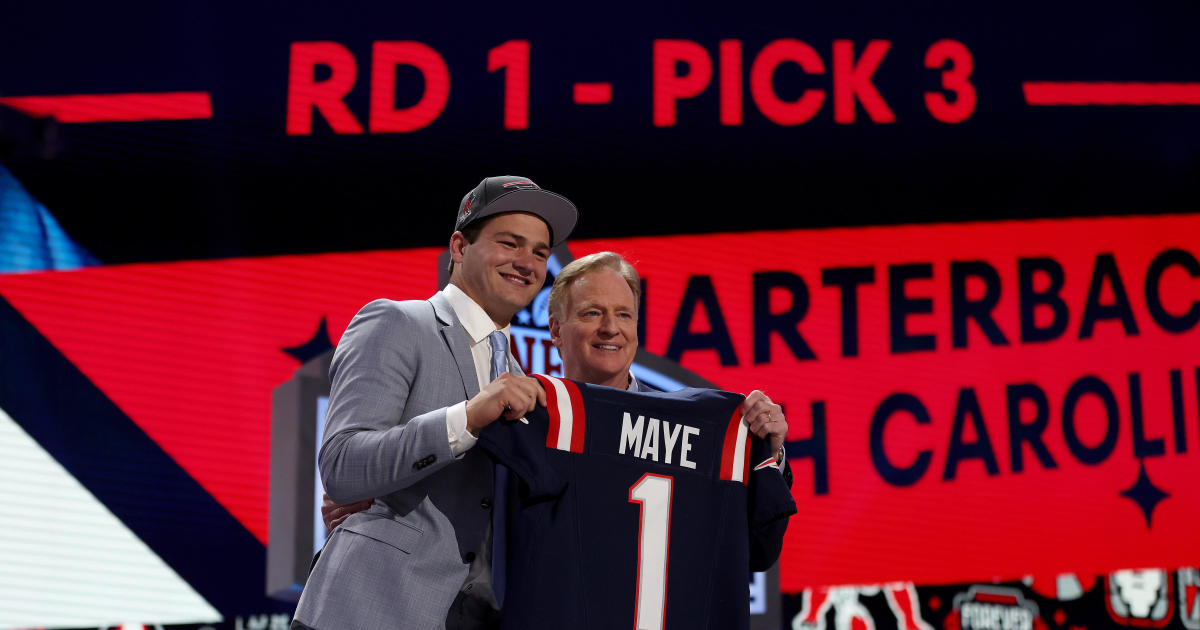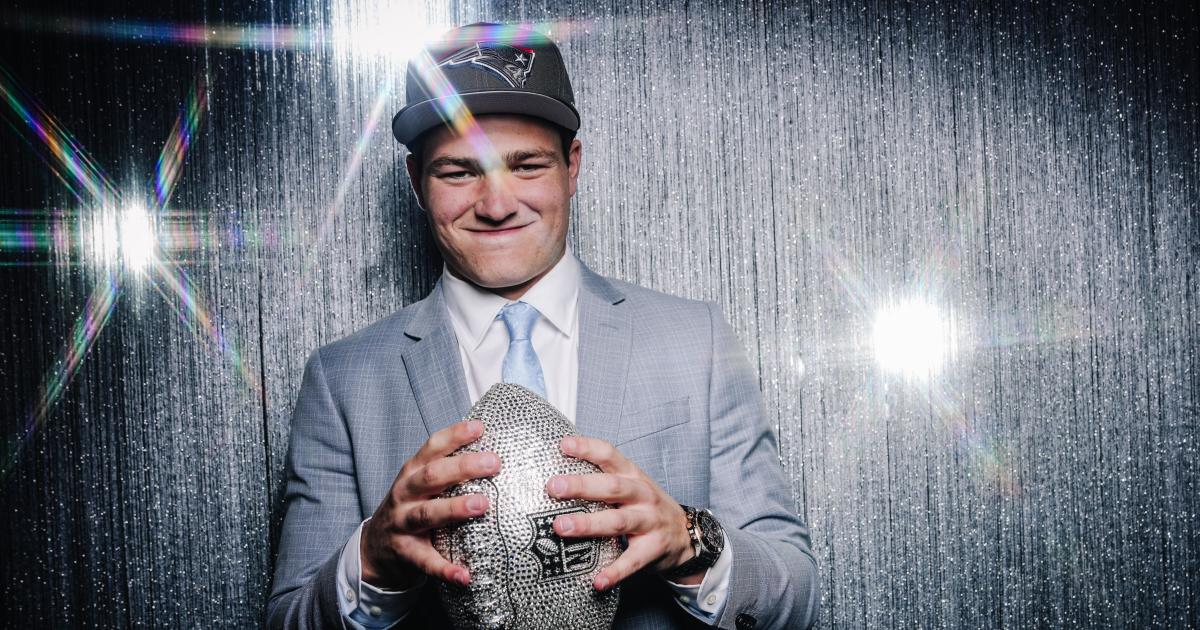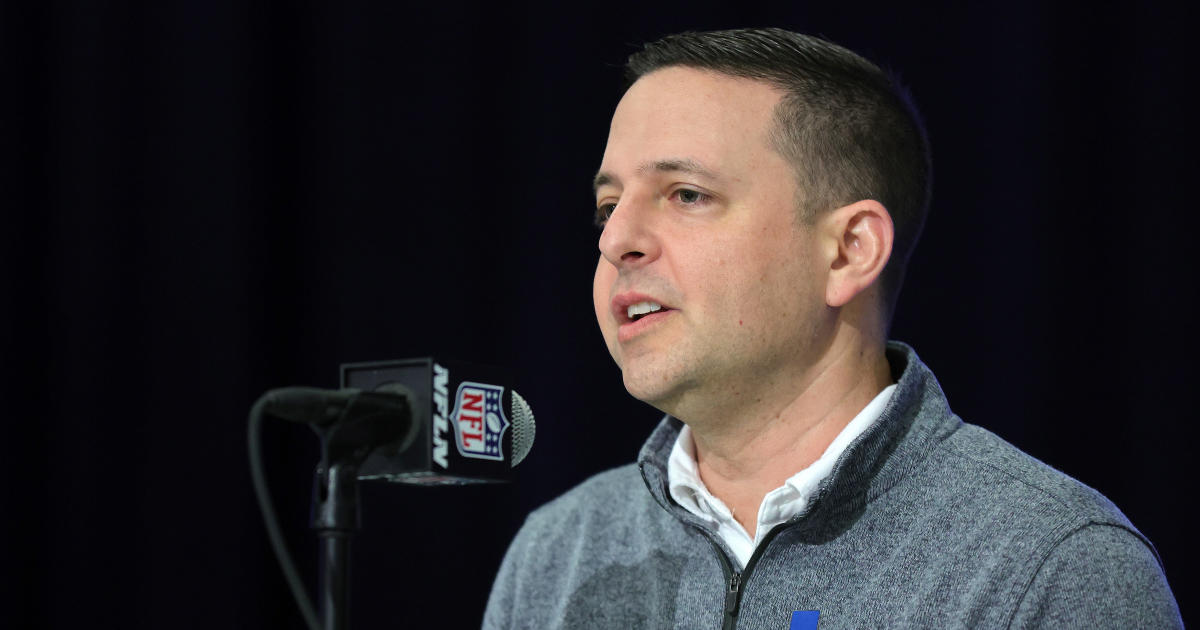Chris Borland's Early NFL Retirement Over Concussion Concerns Shouldn't Be Catalyst For Pointless Debate
BOSTON (CBS) -- As recently as 10 years ago, you would just never see something like this: A 24-year-old linebacker quits his NFL job because he's concerned about suffering too much brain trauma.
Chris Borland, a third-round draft pick out of Wisconsin who played in 14 games for the San Francisco 49ers last season, is retiring from the game, saying that continuing his career is just not worth risking the long-term health of his body and mind.
"I just honestly want to do what's best for my health," he told ESPN. "From what I've researched and what I've experienced, I don't think it's worth the risk. ... I feel largely the same, as sharp as I've ever been. For me, it's wanting to be proactive. I'm concerned that if you wait until you have symptoms, it's too late.
"There are a lot of unknowns. I can't claim that X will happen. I just want to live a long, healthy life, and I don't want to have any neurological diseases or die younger than I would otherwise."
Borland said he's been diagnosed with a concussion twice in his life -- once while playing soccer in middle school, the other while playing football in high school. After spending five years at Wisconsin, he played well in his rookie season in the NFL, compiling 107 total tackles and one sack while also intercepting two passes, but he looked ahead to his future in the game and didn't like the path that would be necessary to travel.
"I've thought about what I could accomplish in football, but for me, personally, when you read about Mike Webster and Dave Duerson and Ray Easterling, you read all these stories, and to be the type of player I want to be in football, I think I'd have to take on some risks that, as a person, I don't want to take on," he told ESPN. "I just thought to myself, 'What am I doing? Is this how I'm going to live my adult life, banging my head, especially with what I've learned and know about the dangers?'"
It is certainly a new era in sports when a player of Borland's caliber walks away from the game before his 25th birthday, so naturally, it's become a rather big story in the country.
And because we live in a society where "hot takes" reign supreme, Borland's announcement has led to a number of people pushing some bad agendas.
"Chris Borland's retirement at age 24 may mean big trouble for the NFL," reads The Washington Post headline. "Is Chris Borland's retirement the beginning of the end for the NFL?" reads another.
In what may be the hottest take in the history of heat, opinions and keyboards, Sports Illustrated's Michael Rosenberg argued that Aaron Hernandez may be better off rotting in prison for the rest of his life than he would have been if he had continued his career in the NFL.
Huh?
(Hold on, I need to take a deep breath and collect myself after that one. The fiery flames from that take temporarily consumed all of the oxygen in the room.)
These sensationalistic jumps to conclusions led to an equally silly response, with Pro Football Talk's Mike Florio leading the charge.
It wasn't too ridiculous of a commentary, until this:
ESPN's Adam Schefter, the most respected reporter in football, seemed to offer a public scolding of Borland for putting his own health ahead of money.
Yuck.
The reality with Borland's situation, like most, is that neither extreme is right. No, the NFL is not going to vanish in the blink of an eye just because one young player decides to retire, and no, that player is not wrong for making a personal decision. (Also, no, a coal-mining uncle's unfortunate, premature demise does not have anything to do with this. Neither does Aaron Hernandez's murder trial. What is wrong with you people?)
Interestingly enough, perhaps the best perspective on the situation came from Maurice Clarett. You'll remember that Clarett was once a young football player with a very promising future, but he got in trouble off the field, lost his NCAA eligibility, and tried to fight the power of the NFL. He eventually ended up in prison, but he has since become known for offering valuable insight to some of the issues young men run into, in sports and otherwise.
In just three tweets, Clarett pinpointed the crux of Borland's situation. Some young men have the luxury of being able to quit the game if they so choose; others know nothing else and have no other options.
Still others might have backup plans but will choose to play anyway. Like Clarett said, nobody is right or wrong. That won't stop the Internet from fighting about it.
The bottom line -- to me, at least -- is that decisions like Borland's are ultimately good, both for the sport of football and more importantly for humanity at large. On the former, it puts added pressure and attention on the NFL for its stance of willful ignorance to concussions that lasted much too long. Change won't come overnight, but news stories like this one will help to force the league to continue to evolve the sport. On the latter, it's inarguable that the more we learn about the human brain, the better off we are as a species.
I don't know that football will last forever, and I don't know that it will disappear in the next 10 years, but I do know we live in a completely different world than we did not too long ago. I know personally, I sustained a pretty good concussion as a junior in high school on a Sunday afternoon (on the sideline, no less). I didn't tell anyone -- not because I was being a tough guy or because I was embarrassed, but because there was no protocol in place. We were never told, "If you get a concussion, tell the trainer." The only thing we knew back then (this is 2002, mind you, so it wasn't exactly the dark ages) was "If you get a concussion, don't go to sleep, because you might die." In my experience, that was the full extent of what most high school athletes knew about brain injuries.
So I made it through the day and went to sleep at night. I played in a JV game the next day.
Nowadays, that does not happen. Kids -- and parents, and coaches -- are hyper-aware of concussions. Just look at the MIAA's page on concussion information. If a high school player suffers a concussion on a Sunday in 2015, there's no chance he's playing in a game the next day. He's likely going to be forced to sit out for a month, and when he wants to play again, he's going to have to pass a battery of tests.
This is all for the better.
Borland's decision was personal, and it came from a man who was more educated about his brain at 24 years old than most football players ever have been at any point in their careers. For many who played in the days before CTE research, this was never an option. Now it is. Some players will take it, others will continue to play, knowing the risks.
There's really not a whole lot of room for debate or arguments. Instead, it might be best just to salute Borland for making a decision that few in his position have the foresight -- or courage -- to make.
Read more from Michael Hurley by clicking here. You can email him or find him on Twitter @michaelFhurley.
Marc Bertrand and Mike Flynn discussed Borland's retirement on Tuesday. Listen below:


